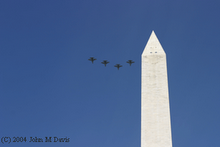
Today is the 65th anniversary of D-Day. Dad was there in a C-47 loaded down with gear and a parachute strapped to his back. When the time came to jump -- standing in the door for that split second, anti-aircraft fire exploding all around, he was hit with his first piece of shrapnel. It tore through his eyebrow just over his left eye but spared his sight. Like most of the 101st Airborne paratroopers, he landed alone in a field surrounded by hedgerows. But he still had his weapon and shortly after landing, met two other paratroopers from a mortar squad. Carrying only the mortar base, they quickly abandoned it and moved to find others. But they did not find other allies for two days nor did they wait for orders from superior officers. They took action on their own.
Shortly after leaving their landing field, they ran into a column of German troop trucks. Hiding behind the hedgerow, they took up positions on either side of the road. In the road was a large depression that had filled with water. Noticing that the drivers would slow down to gauge the depth of the water, they waited for the next truck to come by. When it slowed down, the three paratroopers threw grenades into the cab and fired into the canvas covered bed. None of the Germans survived. This was Dad's first action on D-Day.
He would go on to make his second wartime jump in the Market Garden liberation of Holland, fight and be wounded a second time in the early hours of the Battle of the Bulge, be captured by the Nazis when the 101st field hospital was overrun, spend four months in several POW camps, then be liberated by Patton's 3rd Armored.
Listen to Eisenhower's address to the troops the evening before the invasion.
An NBC report of the Airborne landings.
Reporter Wright Bryan describes his ride on C-47 named "Snooty" during the D-Day invasion with American Paratroopers. Where's "Snooty" today?
Listen to the CBS D-Day Radio Report. Another. A third.
Listen to the NBC D-Day Radio Report.
A World News report recorded over short wave radio.
An NBC report later in the day about how reporters were kept busy before the invasion.
Richard C. Hottelet's broadcast and eye-witness account from the air.
Six hours after the invasion.
Consider that while the world was hearing these reports, Frank Davis was on the ground "taking it to the Germans".





